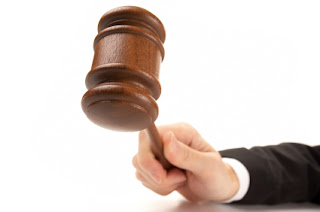There you are, waiting the decision. You’ve done the crime and you’ve done the time. Now you reckon you should be released from prison so you can start life afresh. The judge reads the report, listens to your arguments for release and makes the decision: you are to remain in prison. Not what you wanted to hear. The judge then calls for a recess and heads off to morning tea.
It is all about timing
What you experienced was probably more a case of bad timing than a poor argument on your part. There is a saying that a decision often “depends upon what the judge had for breakfast.” Research on over a thousand parole decisions agrees. Judges make decisions more likely to favour a prisoner if the judge has just returned from a meal or a break. And the difference is significant.
No chance just before lunch
At the start of the morning or just after a food break, around two thirds of prisoners got a favourable parole decision. By the end of the session, with the judge due for a meal or a break, virtually no prisoners heard the words they wanted to hear. The researchers state: “the percentage of favourable rulings drops gradually from 65% to nearly zero within each decision session and returns abruptly to 65% after a break.”
Food and a rest is the key
Naturally, the researchers looked at other factors that could be playing a role. Did the better class of prisoner come in near the start of a session? No. Did the judges know each case before they appeared and scheduled a break after a couple of tough prisoners? No. The truth is that it was an entirely random process. It all came down to how well fed and refreshed the judge was. How’s that for justice?
What does it all mean?
This research has much broader implications. I used to mark university student assignments. The best I could do was 15 at a time. By the time I got to #12 my brain was beginning to disintegrate. I’m sure the last 3-4 in a marking session got lower marks because my brain was fried. What if you are the last person to be interviewed for a job? Have you got the same chance as the first two?
And then think about what you do during the day. Would you and your thinking benefit from more breaks? Did you eat breakfast? If you did, we know from other research that you will likely be thinking better and making wiser decisions.
And if you ever have to front up to court make sure you take some fruit to offer the judge because if it is coming up to his/her lunch break it could save you a lot of grief.
Reference:
Proceedings of the National Academy of Sciences 2011; 108 (17): 6889-6892



No comments:
Post a Comment